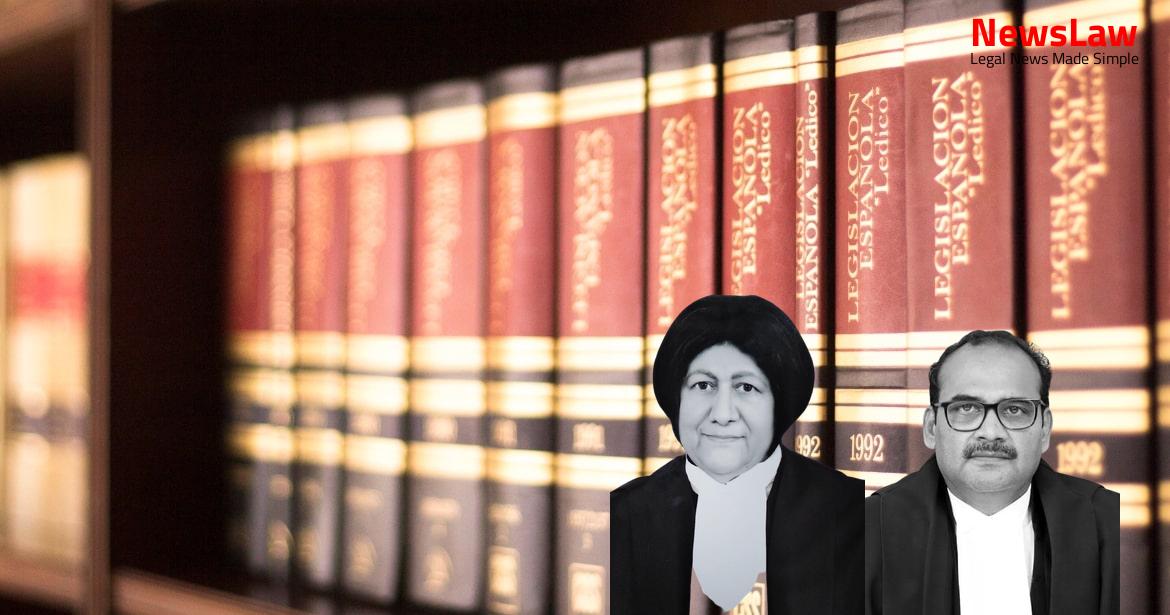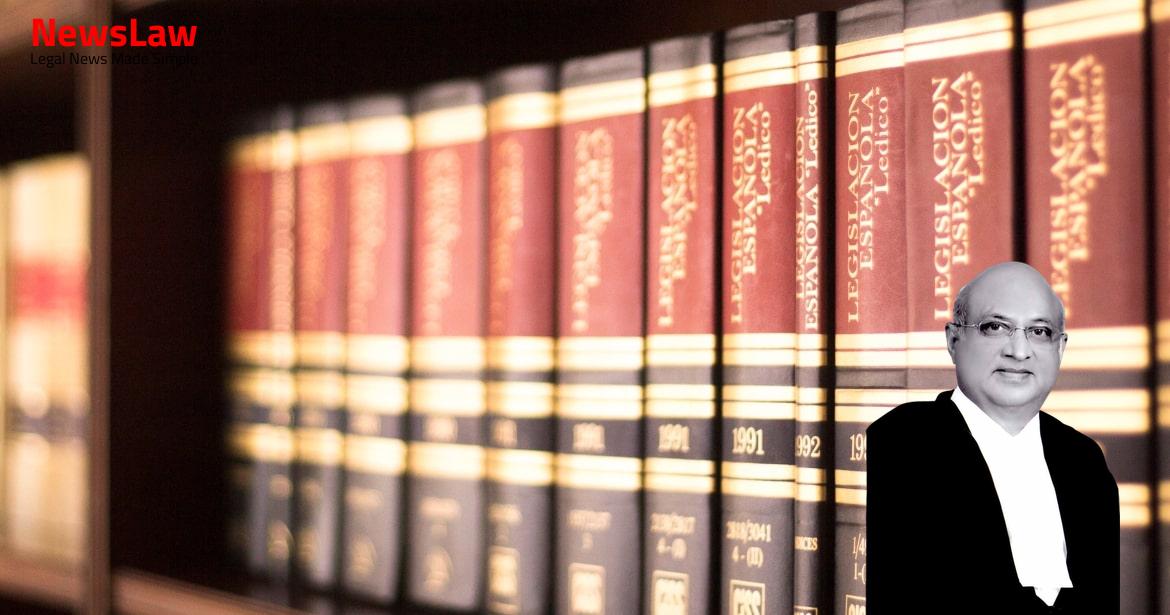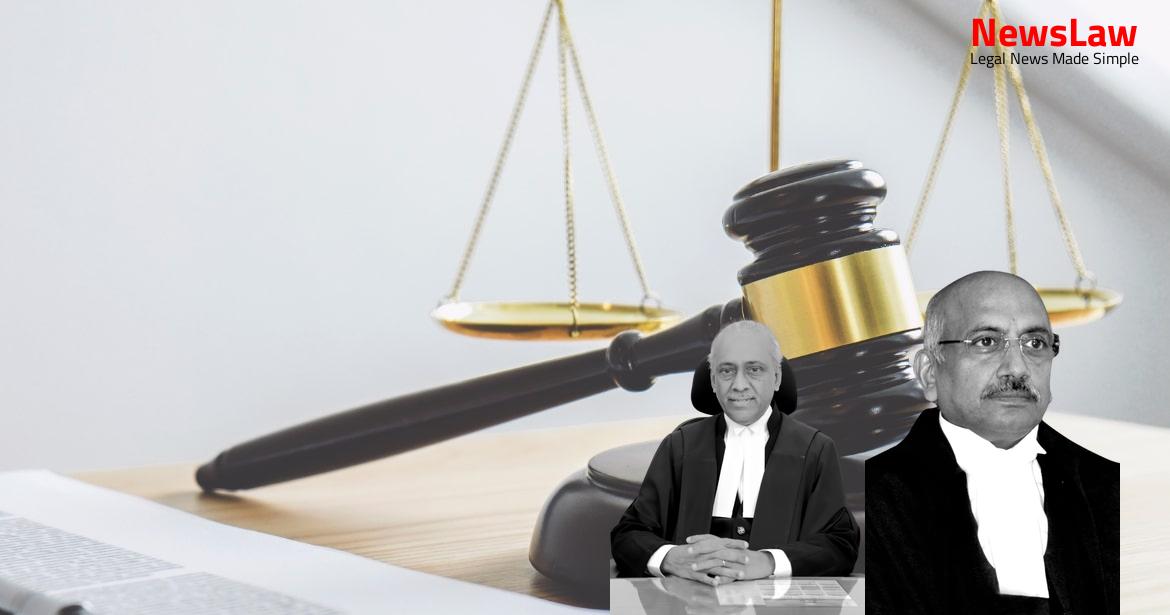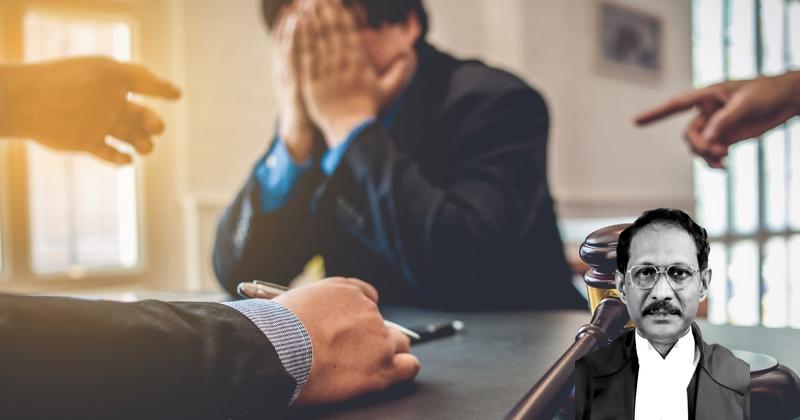Delve into the intricate legal analysis involved in the court’s decision regarding the enhancement of compensation for permanent disability. Explore the factors and principles considered by the court to ensure fair and adequate compensation for the claimant’s life-altering injuries. This case exemplifies the importance of thorough evaluation and uniform methodology in determining compensation for individuals facing long-term disabilities.
Facts
- The claimant, who was a student of UKG at the time of the accident, suffered multiple injuries including cerebral edema, fracture in the temporal bone, spinal cord injury, and lower limb paralysis.
- As a result of his injuries, the claimant lost the ability to control calls of nature and requires constant assistance for his daily routine.
- The MACT found joint and several liability and assessed the claimant as having suffered 100% disability.
- The claimant, coming from a background where his father was a professor and mother was an IAS officer, had aspirations to become an Executive/IAS officer which may now be unattainable due to his injuries.
- The head injuries suffered by the claimant has affected the development and capacity of his brain, making it incomparable to that of a common man.
- The claimant’s lower limbs being completely paralyzed have resulted in 100% disability, shattering his hopes for a blissful life.
- Due to his condition, the claimant is unable to move without a wheelchair or motorized vehicle, leaving his future uncertain and in jeopardy.
- The claimant filed a Claim Petition under the Motor Vehicles Act seeking compensation of Rs. 2,00,00,00 for the permanent disabilities resulting from the road accident that occurred when he was 5 and a half years old.
- The accident led to various complications including loss of speech, convulsions, and injuries to his face.
- The claimant filed an appeal against the judgment of the Motor Accident Claims Tribunal (MACT) in which the compensation was enhanced from Rs.9,00,000/- to Rs.23,20,000/- by the High Court of Punjab and Haryana.
- Various components of compensation were adjusted and enhanced by the High Court, including attendant charges, medicines, physiotherapy, diapers, loss of amenities of life, marital bliss, special diet, and loss of expectations of life.
- The High Court awarded a lump sum of Rs.8,00,000/- for medicines, physiotherapy, and diapers, Rs.3,00,000/- for loss of amenities of life and marital bliss, and Rs.1,00,000/- for the special diet, totaling the compensation to Rs.23,20,000/-.
- Additionally, Rs.7,08,000/- was granted for attendant charges at the rate of Rs.3,500/- per month for 20 years, and Rs.1,00,000/- was awarded for a motorized wheel chair.
Also Read: Analysis of Financial Statements as Acknowledgment in Limitation Act Case
Arguments
- The appeal challenges the adequacy of the compensation granted by the MACT and the High Court in terms of future loss of earning due to permanent disability.
- It is argued that the compensation awarded is unjust and inadequate considering the claimant’s 100% permanent disability.
- The appeal seeks enhancement of compensation based on the nature of injuries, the claimant’s profession, and both pecuniary and non-pecuniary factors.
- Reference is made to the case of Kajal vs Jagdish Chand and others (2020) 4 SCC 413 to support the arguments for enhancement.
- No representation from respondent No.1 is present in the record.
- Advocate Mr. Kailash Prashad Pandey represents respondent No. 2, United India Insurance Company Limited.
- The appellant is required to purchase a motorized wheelchair throughout his life.
- Prayer is made for enhancement of compensation due to pain and suffering, loss of marital bliss, loss of amenities, and societal challenges due to the disability.
- Specific grounds for enhancement include inadequate compensation for loss of future earnings, attendant charges, use of diapers, and future medical expenses including physiotherapy.
- High Court rightly followed the law laid down by the Supreme Court in deciding the case.
- There is no scope for enhancement of compensation in the future.
- The counter-affidavit presented by the respondent supported the decision of both courts based on admitted facts and documentary evidence.
- The judgment in the case of Jagadish vs Mohan and NIC Vs. Pranay Sethi support the case of respondent No.2.
Also Read: Interpretation of Corporate Guarantor under IBC
Analysis
- The compensation for attendant charges and future loss of earning should be calculated using the multiplier method.
- The transportation expenses need to be reassessed for future visits.
- The claimant’s 100% permanent disability requires a thorough evaluation for adequate compensation.
- The multiplier method of 18 should be applied for determining the compensation in this case.
- Future medical expenses, including physiotherapy charges and regular medical check-ups, should be considered.
- The claimant’s physical and mental pain, suffering, and loss of amenities of life should be factored into the compensation.
- The High Court’s calculation of future loss of earning and attendant charges for a limited period does not align with the claimant’s life-long disability.
- The claimant’s inability to pursue a regular career and the need for extraordinary efforts to attend court proceedings should be taken into account.
- The multiplier method is recognized as fair and reasonable for determining compensation based on age, inflation, and realistic needs.
- The claimant’s extensive spinal cord injuries and resulting disabilities necessitate ongoing medical care and assistance.
- The calculation of future medical expenses, including attendant charges and diaper use, must be revised for accuracy.
- Non-pecuniary damages, such as pain, shock, suffering, and trauma, should be considered for compensation.
- The claimant’s post-accident struggles and inability to enjoy life’s amenities as a normal person require adequate compensation.
- The claimant’s capacity as an advocate is severely impacted by the permanent disabilities, affecting his professional abilities and movements.
- The need for continuous medical attention and specialized care due to urinary complications post-injury should be reflected in the compensation.
- The importance of ensuring just compensation through a thorough evaluation of the claimant’s disabilities and ongoing challenges.
- Compensation must be awarded based on comparable injuries and awards
- Uniform methodology for determination of compensation is essential
- Non-pecuniary damages, such as pain, suffering, and loss of amenities, may also be awarded
- Factors for determining just compensation for permanent disability include loss of earning, medical expenses, and loss of future earning capacity
- Principles specified by Lord Denning for accessibility, uniformity, and predictability in like cases
- Heads of compensation may include pecuniary damages (loss of earning, medical attendance) and non-pecuniary damages (mental and physical shock, loss of amenities)
- Compensation in terms of money awarded to procure something tangible to replace the loss
- Courts strive to award reasonable sums as compensation for damages
Also Read: Quashing of FIR and Charge-sheet: Legal Analysis
Decision
- The appellant is entitled to a sum of Rs.4,00,000 for non-pecuniary heads including loss of amenities of life and marital bliss, pain and sufferings, loss of enjoyment, and loss of expectancy.
- The total compensation awarded by the MACT was Rs.4,00,000 for various non-pecuniary heads, while the High Court bifurcated the amount with Rs.3,00,000 for loss of amenities in life and marital bliss, and Rs.1,00,000 for special diet.
- The total compensation determined after adjustments comes to Rs.51,62,000, with an enhanced amount of Rs.28,42,000 after deducting the High Court’s awarded sum.
- The compensation for pecuniary heads is determined at Rs.46,62,000 and for non-pecuniary heads at Rs.5,00,000.
- The Tribunal awarded Rs.2,88,000 for medical expenses towards physiotherapy required by the claimant, with an enhanced amount to carry interest at the rate of 6.5% p.a. from the date of filing the claim petition until realization.
Case Title: ABHIMANYU PARTAP SINGH Vs. NAMITA SEKHON (2022 INSC 662)
Case Number: C.A. No.-004648-004648 / 2022



